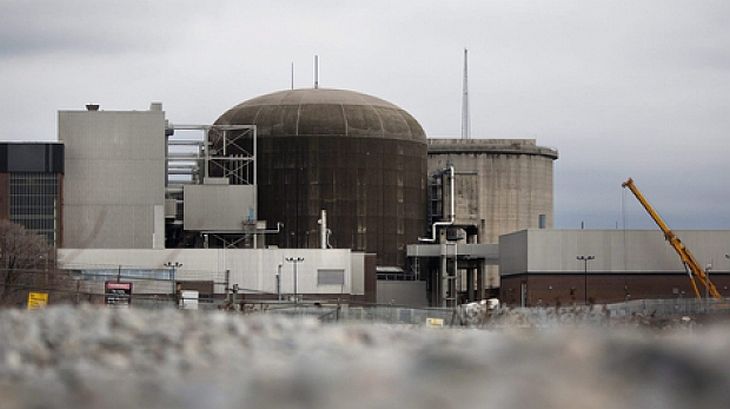Nuclearelectrica advances Cernavoda NPP Unit 1 Refurbishment Project by selecting Candu Energy Inc., a member of the SNC-Lavalin Group to conduct further pre-project work for Cernavoda’s Unit 1 CANDU reactor, ahead of its life-extension to support Romania’s energy security and decarbonization goals.
The two-year agreement, worth roughly $65 million, will see SNC-Lavalin perform long lead and front-end engineering services, in preparation for the upcoming Cernavoda Unit 1 Refurbishment project. The refurbishment will extend the Unit 1 reactor’s operating life with 30 more years, up to 2060.
“Unit 1 Refurbishment is part of Nuclearelectrica’s commitment to contribute to Romania’s repower through clean, low cost and 24/7 available energy. We proud to capitalize on our 26 years of nuclear expertise at the highest standards of safety and productivity, work along top international specialists and complete this strategic project for Romania’s energy security, decarbonization targets and new generation of specialists,” states Cosmin Ghita, Nuclearelectrica CEO.
Specialized personnel from SNC-Lavalin’s Canadian nuclear business will carry out design and procurement engineering work necessary in order to execute design modifications and recommendations arising out of SNC-Lavalin’s condition assessment, also recently performed along with Ansaldo Nucleare, as part of the refurbishment of Unit 1. Additionally, new infrastructure and buildings that are necessary at site to support reactor retubing activities will be designed. Also, within the project, SNC-Lavalin will work with Ansaldo Nucleare which will supply engineering services for the balance of plant activities, continuing the long term partnership between the companies. Other key supporting organizations include Sargent and Lundy, CITON and GE (General Electric) Steam Power who are expected to supply engineering services associated with the refurbishment of Unit 1.
“We are happy to continue the strategic partnership we have with SNC-Lavalin, Ansaldo Nucleare, Sargent and Lundy, CITON and GE (General Electric) Steam Power, as top professionals in the industry, and we are keen on advancing the Cernavoda NPP Unit 1 Refurbishment Project, which will provide Romania with another 30 years of baseload clean energy. Moreover, the extension of the lifetime of Unit 1 will continue to bring multiple benefits to Romania: preserving high quality jobs, as well as creating new ones, investments in the community, an important contribution to locl and national budget, as well as projects for the local supply chain, as part of our vision to create a sustainable future for the next generations,” said Cosmin Ghiță, CEO of Nuclearelectrica SA.
SNC-Lavalin is the only organization which has participated in all CANDU reactor life extension projects to date globally. This includes projects located in New Brunswick (Point Lepreau), Ontario (Darlington and Bruce Power), South Korea (Wolsong), and Argentina (Embalse). The Company’s full lifecycle nuclear expertise, and prior experience across original reactor design, design modifications, as well as prolonged operation and life extensions, will be leveraged to maximize customer outcomes for Cernavoda’s pre-project work.
“Our longstanding work at Cernavoda is a leading example of how we operationalize our commitment to engineer a better future for our planet and its people,” added Ian L. Edwards, President and Chief Executive Officer, SNC-Lavalin. “This life extension will provide many future generations of Romanians with energy security, cost-efficient power, and will allow Romania to continue to benefit from the reduction of its greenhouse gas emissions by over 10 million tonnes a year that the CANDU reactors at Cernavoda have achieved.”
As of 2029, through Unit 1 Refurbishment, around 5.5 million MWh of clean, affordable, resilient energy will be delivered annually in SEN (National Energy System), and more than 5 million tons of CO2 will be avoided on an annual basis, for another 30 more years.
Unit 1 of NPP (CNE) Cernavoda, with an installed power of 700 MW, was commissioned in 1996 and has delivered, up to the present, 133 million MWh, representing 9% of national consumption over a period of 26 years. Also, Unit 1 has prevented the release into the atmosphere of 130 million tons of CO2.
